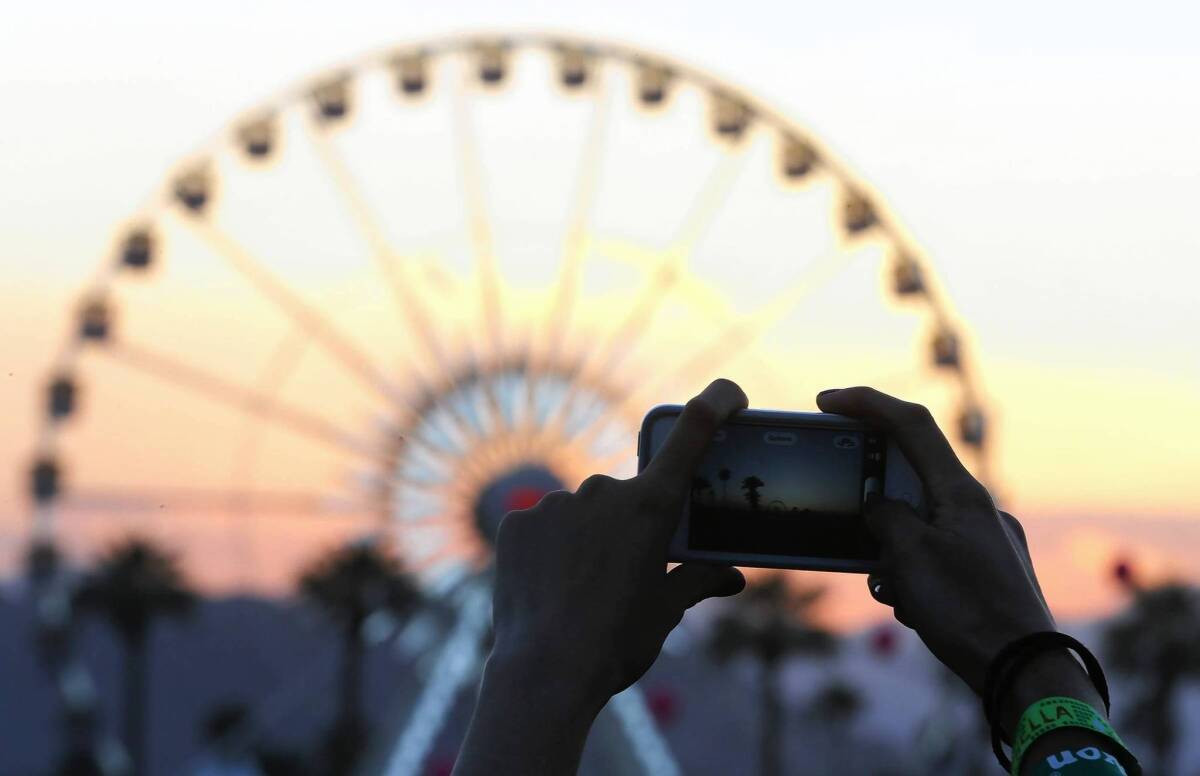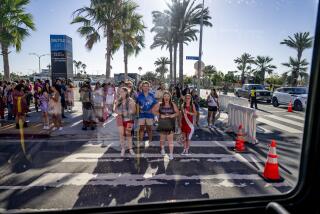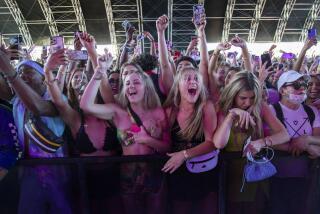Despite coronavirus, why are the L.A. Marathon and Coachella still on?

- Share via
The coronavirus has brought major changes to public events and spaces in California and beyond.
San Francisco, for example, postponed its St. Patrick’s Day parade, one of many celebrations and spectator events that have been disrupted as officials try to contain the virus. Several Silicon Valley companies have told employees they can work from home. Major conferences and events like South by Southwest in Texas have been canceled.
But some major events are still on — at least for now.
Here is what we know:
Los Angeles Marathon
The L.A. Marathon is expected to go on as scheduled on Sunday despite coronavirus concerns.
L.A. County health officials recommended that spectators who are sick stay home and that anyone who attends stay six feet away from others. Runners were advised to wash their hands before the race and to not shake hands with other participants or the public. Hand sanitizer will also be available for runners along the course.
“We are not currently recommending the suspension of any large public events, including the L.A. Marathon,” Barbara Ferrer, director of the county Public Health Department, said in a statement Thursday. “The public can continue to enjoy all that L.A. County has to offer, including this historic event.”
Officials have said they don’t see enough of a public health threat to cancel the marathon.
“We are actively monitoring the situation and communicating directly with participants via social channels, email and our website to update them as we learn more,” Murphy Reinschreiber, chief operating officer of the McCourt Foundation, which organizes the event, said in an email earlier this week. “Runner safety is paramount and will continue to be our top priority.”
The marathon is one of the largest in the country. Runners traverse the city, starting at Dodger Stadium and ending near the Santa Monica Pier.
One L.A. city council member on Friday questioned the decision to run the race.
“This is a big popular event, but I remain concerned & don’t think it’s worth the risk,” wrote Councilman Tom Bonin on Twitter.
Coachella
There have been questions about the massive Coachella music festival, set for April 10-19, and its country cousin Stagecoach, set for April 24-26, in Indio.
So far, Riverside County health officials have not called for cancellation of those events.
Dr. Cameron Kaiser, the county’s public health officer, told reporters Friday that the region has not reported any cases of COVID-19 and there has not been any community spread.
“If we do make an emergency declaration based on changes in local conditions, as a public health officer I do have the ability to shut down such large gatherings. We would do so with as much lead time as possible,” Kaiser said.
He told the Desert Sun that officials could change their minds if coronavirus spreads but didn’t specify how many cases there would have to be to cancel Coachella, which last year drew 100,000 fans.
Other venues
In addition to the city’s St. Patrick’s Day parade, the San Francisco Symphony’s concert scheduled has been interrupted. Stanford University moved classes online.
USC said Friday that it would conduct lectures and seminars online rather than in classrooms for three days next week to test its ability to operate remotely should it become necessary to suspend in-person contact.
Silicon Valley companies ordered employees to work from home. Heeding San Francisco’s call to cancel large gatherings, like concerts, sports games and conventions, even a volunteer tree planting gathering for Arbor Week was called off.
Los Angeles County officials have held discussions about banning spectators from sporting events if the outbreak gets worse, but that has not be ordered yet.
“If at any point we think that there’s good reason for us to be worried about extensive, extensive community transmission ... we may ask for modifications at large public events,” Ferrer said Thursday. “This could be that games are played but there are no spectators. This could be that there are limits to how people are going to gather at public events. But I want to reassure everyone we are not there today.”
More to Read
Sign up for Essential California
The most important California stories and recommendations in your inbox every morning.
You may occasionally receive promotional content from the Los Angeles Times.













